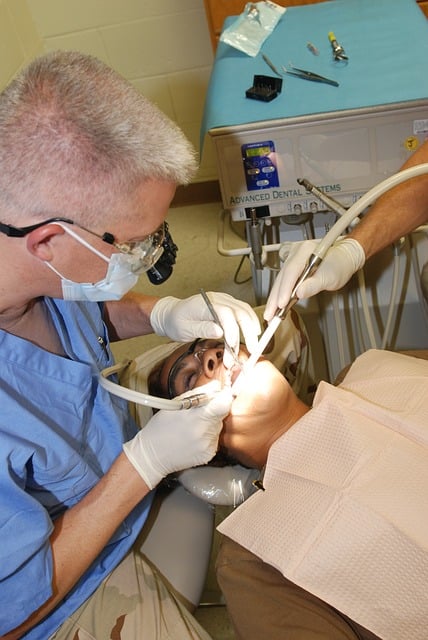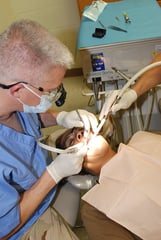1 min read
Defining Your Own Success
“It’s one thing to inspire all these little girls by winning a bunch of medals. That’s easy. But it’s another thing entirely to be an inspiration...
2 min read
Ashley Bossell : Sep 1, 2017 9:00:00 AM


Ashley Bossell continues advice for new-parents following her article
Infant/Toddler: Taking Care of Baby’s Teeth
 Infections in a pregnant woman have been recognized to increase the risk for problems such as low birth weight, preeclampsia characterized by high blood pressure and possible fluid retention, and preterm birth, which is delivery at less than 37 weeks. Since 1990 the preterm birth rate has increased over 20%. It is the leading cause of death in the first month, while infants who survive can have feeding difficulties, problems with body temperature, breathing troubles, delayed brain development, impaired vision, deafness, and poor coping skills. Periodontal infections/diseases including gingivitis and periodontitis are included in the list of infections that are associated with pregnancy complications. Current evidence suggests that these periodontal diseases are also associated with an increased risk for cardiovascular disease and diabetes, as well as gestational diabetes.
Infections in a pregnant woman have been recognized to increase the risk for problems such as low birth weight, preeclampsia characterized by high blood pressure and possible fluid retention, and preterm birth, which is delivery at less than 37 weeks. Since 1990 the preterm birth rate has increased over 20%. It is the leading cause of death in the first month, while infants who survive can have feeding difficulties, problems with body temperature, breathing troubles, delayed brain development, impaired vision, deafness, and poor coping skills. Periodontal infections/diseases including gingivitis and periodontitis are included in the list of infections that are associated with pregnancy complications. Current evidence suggests that these periodontal diseases are also associated with an increased risk for cardiovascular disease and diabetes, as well as gestational diabetes.
It is estimated that over 50% of pregnant women have some form of periodontal infection, whether gingivitis or periodontitis. 50-70% of women will develop gingivitis during pregnancy, and it is often seen between the second and eight months. Changes in hormones during pregnancy promote an inflammatory response that increases the response to the bacteria in the mouth, resulting in a higher risk of developing gingivitis and periodontitis, without any increase in the amount of plaque. Developing periodontal infections can make pre-existing conditions in the mouth worse, so if you know you will be getting pregnant it is suggested to get all dental treatment done beforehand. This will prevent having to get emergency treatment during pregnancy that may require x-rays, antibiotics, or anesthetic.

Current guidelines and data suggest that dental care during pregnancy is safe and providing dental care will help remove potentially harmful bacteria that could cause complications. Be sure to tell your dentist if you are pregnant or planning to become pregnant soon, if there are any risks associated with the pregnancy, as well as any new prescription or over the counter medications. During the pregnancy continue to see your dentist regularly. If you are concerned about any effect that a drug or treatment will have on you or your baby, you can discuss those concerns with your dentist and together choose the best options.
Swimtastic offers a clinic designed specifically for families with infants and toddlers ages 6 months - 2 years old. If you have an interest in our Swim Baby or Swimtastic Swim Baby parent-child swim classes, this is the perfect way to get your child introduced to water safety!
Register today to get more information!
Reference:
American Dental Hygienists Association (ADHA). “Periodontal Diseases and Adverse Pregnancy Outcomes: A Review of the Evidence and Implications for Clinical Practice.”Periodontal Diseases and Adverse Pregnancy Outcomes: A Review of the Evidence and Implications for Clinical Practice, 2008, www.adha.org/sites/default/files/7838_Periodontal_Diseases_and_Adverse_Pregnancy_Outcomes.pdf.

1 min read
“It’s one thing to inspire all these little girls by winning a bunch of medals. That’s easy. But it’s another thing entirely to be an inspiration...

A recent case study reported in the British Medical Journal and subsequently made into an episode of the BBC documentary series, “The Doctor Who Gave...

At Swimtastic, water safety is the heart of everything we do. That’s why we’re proud to officially partner with the National Drowning Prevention...

Visit our Water Safety Blog for expert advice, family tips, and more!